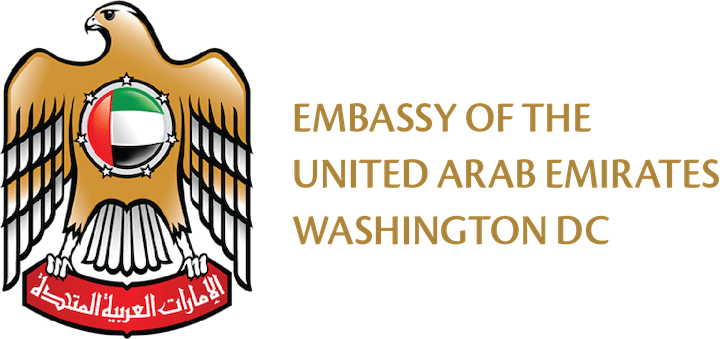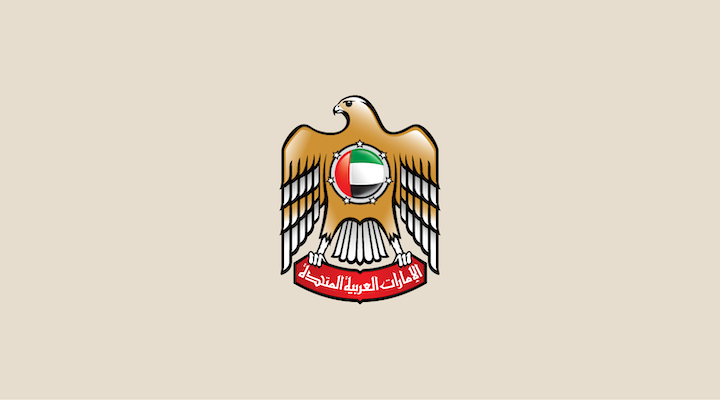UAE Issue Update: Yemen
2 April 2018
Summary
- The UAE believes that a political dialogue is the only solution to ending the conflict in Yemen. Toward that end, the UAE strongly supports the efforts of the new UN Special Envoy Martin Griffith.
- Despite Houthi-imposed obstacles, the UAE is working closely with Saudi Arabia to increase the flow of humanitarian assistance into Yemen through Hodeidah and other points of entry. The UAE and Saudi Arabia announced last week an additional $1 billion in funding for UN assistance programs in Yemen. This is in addition to the UAE’s contribution of $2.78 billion in humanitarian assistance to Yemen from 2015 to 2018, benefitting more than 10 million Yemenis.
- Iran is providing increasingly sophisticated weaponry into Yemen, increasing the violence and prolonging the conflict. The Houthi missile barrage on Riyadh on 26 March, along with a new report documenting Iran’s provision of IEDs around the region, exposes direct Iranian support.
- The UAE continues to support Yemeni forces as they make steady gains against the Houthis on multiple fronts. The use of child soldiers demonstrates the Houthis’ weakening position.
- Combined operations with local Yemeni forces and the US continue to degrade Al Qaeda in the Arabian Peninsula, Al Qaeda’s most dangerous global franchise.
Political Dialogue
The UAE supports a political dialogue to end the conflict in Yemen.
- The UAE Government strongly supports the efforts of the new UN Special Envoy Martin Griffith, the legitimate Government of Yemen and regional and international partners to end the conflict in Yemen via political dialogue.
- In February 2018, the outgoing UN Special Envoy, Ismail Ould Cheikh Ahmed, announced that new negotiations will take place in Oman under Griffith.
- The UN previously facilitated direct talks in Switzerland in June and December 2015, and in Kuwait from April to August 2016.
- The Kuwait talks were based on the UN’s roadmap, which included the implementation of UN Security Council Resolution 2216 and the establishment of a national unity government. Under the roadmap, the national unity government would have been responsible for establishing dialogues to arrive at a political solution.
- The past peace talks halted when the Houthis rejected the UN proposals in October 2016 and refused to meet with the UN Special Envoy.
Humanitarian Assistance
Increasing the flow of humanitarian assistance to the people of Yemen is a top priority.
- Since 2015, the UAE has contributed $2.78 billion in assistance to the Yemeni people.
- In addition, the UAE recently pledged $500 million to the UN’s Yemen Humanitarian Response Plan for 2018 – part of a joint humanitarian pledge of $1 billion by the UAE and Saudi Arabia.
- These commitments are part of the Coalition’s Yemen Comprehensive Humanitarian Operations (YCHO) campaign, which supports the work of UN agencies and independent NGOs.
- The YCHO campaign includes $40 million to expand Yemeni ports’ capacity to accommodate additional shipments, and $30 million to reduce the cost of land transportation through road upgrades.
- Also under the YCHO, 17 safe-passage corridors originating from six points of entry will be set up to ensure safe overland transportation of aid to NGOs operating in Yemen.
- Throughout the conflict, UAE humanitarian teams have worked in tandem with the armed forces to address the needs of the population.
Hodeidah Port
The UAE is committed to ensuring the flow of humanitarian assistance through Hodeidah Port.
- Despite Houthi-imposed obstacles, the UAE is working closely with Saudi Arabia to increase the flow of humanitarian assistance into Yemen through Hodeidah and other points of entry.
- Previous closures were temporary measures related to critical security threats, including the smuggling of Iranian ballistic missiles that were used in attacks against civilian targets in Saudi Arabia.
- On 2 February, the Yemeni army, with the UAE's backing, liberated the Haiys district of Hodeidah from Houthi militias, bringing the UAE and its Coalition partners closer to liberating the entire city.
- The liberation of Haiys will contribute to gaining control of a strategic logistical line connecting Taiz and Hodeidah and cutting off the Houthis’ supply and reinforcement lines.=
Iranian Interference
Iran is providing increasingly sophisticated weaponry into Yemen, increasing the violence and prolonging the conflict.
- On 26 March, the Houthis fired a barrage of seven missiles into Saudi Arabian territory. Although Saudi air defenses intercepted the missiles, falling shrapnel from one of the missiles caused one fatality in Riyadh.
- The Houthis have targeted Saudi Arabia with over 100 ballistic missiles since their coup in March 2015. Most missiles have been intercepted by Saudi and UAE air defenses.
- In December 2017, the US Government presented evidence that Iran supplied the Houthis with missiles and other weapons. Independent watchdog reports and numerous maritime interdictions confirm direct Iranian support.
- According to a March 2018 report by Conflict Armament Research, “multiple strands of information suggest that Iran orchestrated the transfer of technology and materiel to Houthi forces in Yemen to assist in the manufacture of [radio-controlled improvised explosive devices]” that are camouflaged as rocks on roadsides. The report notes that Hezbollah has used similar devices elsewhere in the region.
- On 19 February, the Yemeni army announced the extraction of around 3,000 mines and explosive devices in several areas in the Saada Governorate planted by the Houthi militia. The Houthis have been planting mines for three years in several regions and residential areas, which has led to many civilian deaths and injuries.
Countering the Houthis
The UAE supports the Yemeni forces as they make steady gains against the Houthis on multiple fronts.
- The UAE continues to support Yemeni forces as they put pressure on the Houthis along Yemen’s Red Sea Coast and around the key port city of Hodeidah. Recent victories in Hodeidah’s Haiys district indicate important progress on that front.
- The UAE deployed armed forces to Yemen in March 2015 in response to a direct request by the internationally-recognized Government of Yemen. This followed the occupation of the capital Sana’a and other parts of the country by the Houthis.
- Over the course of the conflict, the Houthis have targeted Saudi Arabia with ballistic missiles. Additionally, they have committed grave human rights violations, including the forced conscription of child soldiers. The use of child soldiers demonstrates the Houthis’ weakening position. The Houthis have also diverted humanitarian assistance from reaching the Yemeni people.
- The UAE and its Coalition partners observe strict rules of engagement and adhere to established principles of international humanitarian law. The UAE also fully supports the Group of Eminent International and Regional Experts established in October 2017 to examine human rights violations and abuses and to work “to identify those responsible.”
Degrading Al Qaeda in the Arabian Peninsula
Combined operations with local Yemeni forces and the US continue to degrade Al Qaeda in the Arabian Peninsula (AQAP), reducing its ability to plan and carry out international terrorist attacks.
- UAE forces play a critical role in combating AQAP as well as other radical elements in Yemen, particularly in the south.
- The UAE trains, equips, advises and accompanies Yemeni forces on counterterrorism raids.
- On 17 February, the UAE Armed Forces worked with Yemeni forces on an operation in Al Faisal to drive elements of AQAP out of Wadi Al Masini in Hadramaut Province.
- With the UAE’s assistance, Yemeni forces liberated the town of Mahfad, an AQAP stronghold in the southern province of Abyan, in October 2017.
- Also with the UAE's backing, Yemeni forces liberated the critical port city of Al Mukalla from AQAP in April 2016.
View MOFA’s latest infographic for additional information on UAE humanitarian assistance in Yemen.
Learn more about the UAE’s humanitarian assistance in Yemen and around the world here.




